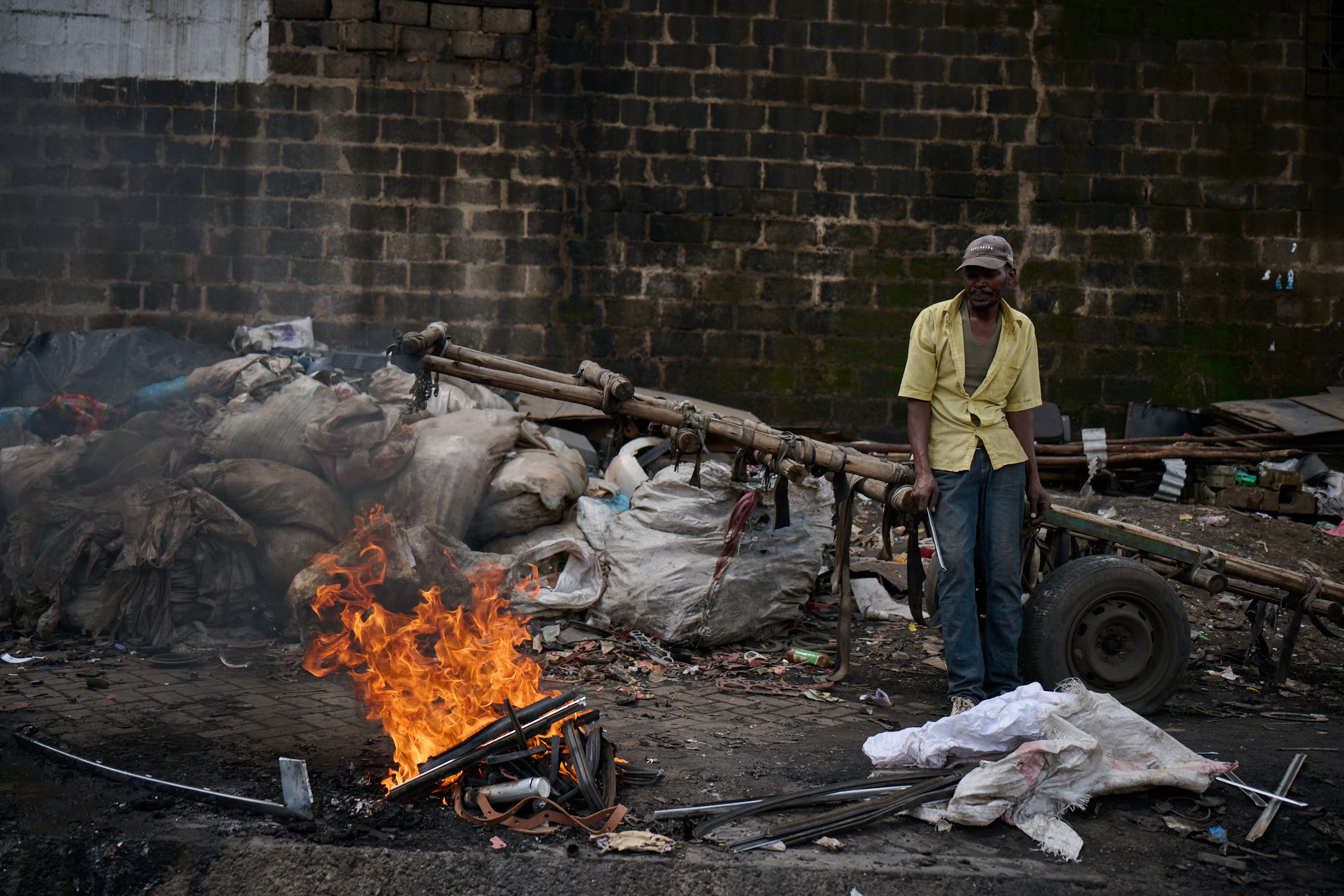The challenge
Open burning of waste is a global crisis. Around 41% of households worldwide either dump or burn waste and in Africa it is estimated that 90% of all waste is mismanaged.
Open burning releases harmful pollutants, including methane and black carbon—responsible for around 11% of global emissions—accelerating climate change and causing respiratory, dermatological, and developmental health issues.
Open burning is the symptom of inadequate waste management systems, which gives people no choice but to burn their waste. Drivers also include low awareness of health risks and perceived benefits such as pest control or resource recovery.
The practice deepens existing inequalities and disproportionately affects the most vulnerable, including informal waste workers, women and children, and people living in or around dumpsites.
Waste management is often deprioritised in national government budgets and only received an estimated 0.41% of overseas development finance between 2003–2021.

Sam Barker, LRF Impact Review, 2022, Nairobi, Kenya
Our programme
Addressing this issue requires holistic and inclusive approaches. The Engineering X Open Burning of Waste programme works to create the conditions that enable change in behaviour, policy, and practice to end open waste burning globally through convening and community building, advocacy, strategic partnerships, grant funding, and evidence generation.
This initiative is supported by Lloyd's Register Foundation and the Climate and Clean Air Coalition.
Upcoming
Please get in contact if:
-
You are working for an African city, and you are interested in taking transformative action in waste.
-
You are running an event where the Africa roadmap would be useful.
Explore the Africa Roadmap on Transformative Action to End Open Burning of Waste and Kisumu City Action Plan.
The Africa Roadmap on Transformative Action to End Open Burning of Waste identifies the key actions to address the systemic deficiencies in waste management and promote waste to resource conversion that could generate multiple social, economic and environmental benefits. In 2025, the African Ministerial Conference on Environment endorsed the Roadmap, calling on all African national governments and local authorities to take concrete actions to implement the Roadmap.
To share the Africa Roadmap and City Action Plan with national government and local authorities, Engineering X will be holding a webinar, estimated for February 2026.
Look out on the LinkedIn community of practice and here for more information closer to the time.
Our key partners, International Solid Waste Association, held their annual World Congress in Buenos Aires from 27 – 29 October 2025.
We presented the three Regional Roadmaps for Africa, Asia and Latin America and the Caribbean.
We look forward to engaging with the ISWA World Congress next November in London!
Our work
Join our community
Building on the two global workshops we held in 2021, our community continues to build and share knowledge through an online Community of Practice, For information about the workshops read on or to contribute to the conversation around Open burning waste join our linkedin group.




